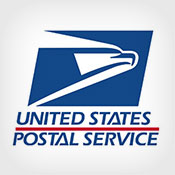Privacy & Security
November 20, 20145 ways health data breaches are far worse than financial ones
Tom Garrubba, Senior director, Santa Fe Group and Shared Assessments Program | November 10, 2014Remember that song Janis Joplin made famous “Piece of My Heart?” I do, and it reminds me of the fundamental difference between financial and healthcare data breaches.
The breach of personal financial information causes stress — recovering missing funds, paying late fees or interest, worrying about credit worthiness. Ultimately, however, a person’s financial identity can be fully restored.
Not so with medical identity. Healthcare data breaches have a much more personal, longer lasting, and potentially deadly impact.
Victims are at the mercy of those who, through fair means or foul, have control of their protected health information (PHI). And several factors contribute to the costlier, deadlier effects of healthcare data breaches over financial ones.
1. High volume of healthcare data breaches.
2013 statistics from the Identity Theft Resource Center were reported in a recent Fortune.com article: 44 percent of all breaches were healthcare related, while financial service breaches were just 3.7 percent (the first time that healthcare industry breaches exceeded all others). Healthcare is again on track to lead in 2014, also according to the Identity Theft Resource Center—a dubious distinction, to be sure.
….
2. The difficulty in restoring medical identities. Victims of healthcare data breaches have fewer resources to help them.
….
3. Ignorance of the deadly consequences. Individuals don’t realize the devastating impact associated with a breach of their health records. What was presumed private—physical, mental, and prescriptive health history — could be made public and used inappropriately. This data could appear anywhere at anytime, online, in the form of cyberbullying or worse, blackmail.
….



